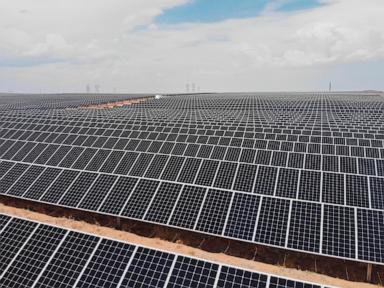U.S. Renewable Energy Investments Face Significant Setbacks Amid Political Uncertainty
Over the past year, the United States has seen a staggering $14 billion worth of renewable energy projects either canceled or postponed, according to a recent analysis released Thursday. This downturn is largely attributed to the looming threat posed by President Donald Trump’s proposed comprehensive legislation, which has sparked widespread concern about the future trajectory of domestic investments in battery storage, electric vehicles (EVs), and renewable infrastructure such as solar and wind power facilities.
Legislative Changes Threaten to Undermine Renewable Growth
Many industry stakeholders fear that upcoming legislative actions, particularly the passage of a tax reform bill by House Republicans, could significantly weaken existing incentives for clean energy development. The nonpartisan organization E2, in collaboration with Atlas Public Policy, analyzed project data and estimates that since January, these policy shifts have resulted in the loss of approximately 10,000 new green jobs. The proposed tax measures threaten to eliminate vital renewable energy tax credits, which have been instrumental in driving the sector’s expansion.
The Role of Tax Credits in Accelerating Renewable Technologies
Enacted as part of the landmark climate legislation passed under President Biden in 2022, these tax credits are crucial for fostering the deployment of renewable technologies that are central to the nation’s clean energy transition. Since the passage of the Inflation Reduction Act, industry analysts estimate that over $132 billion worth of renewable projects have been announced-excluding cancellations-highlighting the sector’s rapid growth fueled by policy support.
Potential Impact of Legislative Reversals
However, recent legislative developments threaten to roll back many of these incentives. The House’s proposed bill effectively nullifies several provisions of the climate law, prompting concern among environmental advocates and industry leaders. Critics warn that such reversals could lead to a decline in renewable investments, job losses, and a shift of projects overseas, undermining the country’s climate commitments and economic competitiveness.
Notable Cancellations and Industry Responses
Recent cancellations include major projects such as the Kore Energy battery manufacturing plant in Arizona and BorgWarner’s shutdown of two EV production facilities in Michigan. Additionally, Bosch announced the suspension of a $200 million hydrogen fuel cell manufacturing project in South Carolina, citing market uncertainties over the past year. Factors like tariffs, inflation, early-stage company struggles, and slow adoption rates for certain technologies have all contributed to these setbacks. Notably, the battery storage and EV sectors are expected to face the most significant impacts in 2025, with some projects already canceled before reaching that milestone.
Geographical Disparities in Project Cancellations
Analysis indicates that over $12 billion of the canceled projects are concentrated in Republican-led states and districts. Experts note that these regions have historically benefited from federal investments in renewable energy, which have created jobs and spurred economic growth. States like Georgia and Tennessee, heavily invested in EV and battery manufacturing, are particularly vulnerable. Marilyn Brown, a professor of energy policy at Georgia Tech, expressed concern about the future of ongoing projects if current tax incentives are rescinded.
Political Divides and Industry Advocacy
While some Republican lawmakers have called for the continuation of renewable tax credits, arguing that their elimination would harm American workers and weaken the nation’s leadership in clean energy, others remain skeptical. In April, several legislators sent a letter to Senate Majority Leader John Thune, warning that repealing these incentives could disrupt the industry’s momentum and economic benefits.
Contrasting Global Approaches to Green Investment
Meanwhile, international efforts to promote green energy continue to advance. The European Union is implementing the Carbon Border Adjustment Mechanism to prevent “carbon leakage,” where companies relocate production to countries with lax climate policies. Additionally, the International Maritime Organization is working toward establishing a global carbon tax on shipping, reflecting a broader commitment to climate action worldwide.
Signs of Resilience and Future Opportunities
Despite setbacks, there are still positive signs for renewable energy growth in the U.S. In April alone, approximately $500 million in new projects were announced, including Hitachi’s expansion into transformer manufacturing in Virginia and Corning’s investment in solar panel production in Michigan. These developments suggest that, even amid policy uncertainties, the sector continues to attract interest and investment. However, recent data from E2 indicates that about $4.5 billion worth of projects were canceled or delayed last month, underscoring ongoing challenges.
Conclusion: Navigating the Future of U.S. Renewable Energy
The future of renewable energy in the United States remains uncertain amid political debates and legislative shifts. While international counterparts are ramping up their green investments, U.S. policymakers face the task of balancing economic growth, energy independence, and climate commitments. The coming months will be critical in determining whether the nation can sustain its momentum toward a cleaner, more sustainable energy landscape or if setbacks will hinder progress for years to come.

